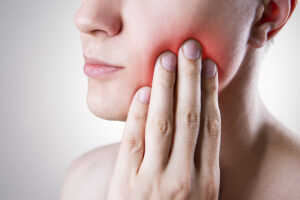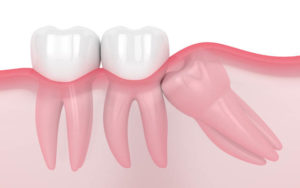Whoops! You just chipped your tooth. What’s your next step?
It’s a good question. You may not feel anything other than the sharp new edge of your chipped tooth, but chipped teeth can cause extreme pain, and may be hypersensitive to heat or cold temperatures. Naturally, you’ll notice it in the mirror too. Other complications from a chipped tooth may include:
• Fever;
• Halitosis or bad breath, a bad taste in the mouth;
• Swollen glands in the neck.
What Should You Do?
The first rule is always: call your dentist and make an appointment. You can’t fix it yourself, but while you wait to see your dental professional, there are some steps you can take to feel better.
• Dissolve 1 teaspoon of salt in 1 cup of warm water, and use it to rinse your mouth two or three times a day. This will help to keep the area clean.
• If there is any bleeding, use clean, soft gauze to clean it and apply gentle pressure.
• An ice pack, or small bag of frozen peas, can help to reduce any swelling of the cheek.
• You can purchase something called “dental cement” over the counter that can serve to protect the chipped area until you can see the dentist.
• Use over the counter medications for pain, such as acetaminophen or ibuprofen;
• Eat only soft foods, and try to avoid the area of the chipped tooth.
Causes
Sometimes, the cause is obvious, but other times, you may wake up with a chipped tooth and not truly understand why.
• A dental accident – where you knock your teeth against a hard surface – is the most obvious cause. Sports accidents can be included in this category.
• Eating hard foods such as candies, or unexpectedly biting on a bone, can also cause chipped teeth.
• Teeth grinding, or bruxism, can lead to chipped teeth. Up to one in three people suffer from this condition, so it may be an underlying cause. Even when not chipped directly, it can weaken teeth, leading to chips and more.
• A diet high is sugars and acids can lead to weakened tooth enamel, and therefore weakened teeth.
• An uneven bite can cause an irregular distribution of stress, which may wear down certain teeth over time, leading to chips as the enamel weakens.
• Putting pressure on teeth with untreated cavities can also lead to chips and other breakage.
Once You See Your Dentist…
Your dentist will have a number of treatment options according to the nature of your chipped tooth.
• For a very small chip, your dentist can simply plane or smooth out the tooth edge and polish it to match the rest of the tooth.
• When larger pieces are missing, a dental filling or crown may be used to cover and protect the open edge. It will look the same as your other teeth, and you will be able to bite and chew as usual.
• Bonding, veneers, or crowns may be used as the case requires;
• Where the nerve is exposed, it may require a root canal, or other more complex work.
Your dentist will want to help determine any underlying causes as well. The best defense is to keep your teeth in the best possible shape.
If you are looking for advice on any aspect of dental health or dental hygiene, your dentist is the right person to ask. You’ll find the answer at Dr. F. Keshavarz Dentistry in Brampton, ON.
If you’re looking for a well-regarded and highly skilled dentist in the Brampton area, make an appointment with Dr. F. Keshavarz Dentistry by calling (905)-791-3867. Visit our website to learn more about our dental services.







